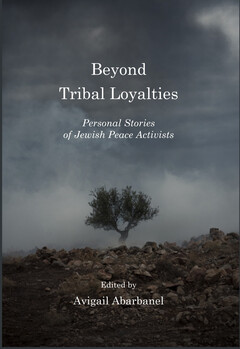The Electronic Intifada 16 September 2006
In a letter published in the Irish Times today (text below), 61 Irish academics from a wide variety of disciplines called for a moratorium on EU support of Israeli academic institutions until Israel abides by UN resolutions and ends the occupation of Palestinian territories.
The letter was organized in response to the Palestinian call for an academic and cultural boycott. The ongoing Israeli occupation has meant that educational establishments are closed off for many Palestinians. The checkpoints, closures and curfews Israel has imposed, as well as the ongoing harassment of academics and students, have played havoc with university life. In addition, military attacks on universities and schools and the occupation of many schools by Israeli soldiers have turned education into a life-threatening activity.
To date, 171 civil society organizations in Palestine including the Palestinian General Federation of Trade Unions (PGFTU), the General Union of Palestinian Teachers (GUPT), and the Federation of Unions of Palestinian Universities’ Professors and Employees have called for a boycott of Israel, seeing such a boycott as a way for people around the world to express practical solidarity, and effect change in a nonviolent manner.
While this letter does not call for a comprehensive boycott, it does demand that European academic institutions cease funding collaborative projects with Israeli institutions. It also calls for academics to refrain, where possible, from institutional collaboration with Israel. Such actions are to continue until Israel abides by international law, part of which is ending the occupation.
Such a moratorium is not directed against individuals but against Israeli institutions which provide support — both moral and practical — for a racial system within Israel and an illegal occupation of Palestinian territories. The comparison is with South Africa. Just as blacks in South Africa called for sanctions against that country, so have Palestinians under Israeli control called for sanctions against the Israeli state and its institutions. It is no coincidence that modern day South Africans are among the strongest supporters of actions that will peacefully end the brutal racially-based regime in Israel, just as the apartheid regime was toppled.
Groups across the world have heeded the Palestinian call for an academic boycott. The British Academic union NAFTHE recently supported the academic boycott of Israel, followed by the Canadian Union of Public Employees (CUPE). On July 10th, the Congress of South African Trade Unions (COSATU), explicitly drawing on their own struggle against apartheid, called for a boycott of Israel. Moreover in Ireland, the Irish Congress of Trade Unions has already adopted a position of supporting political and economic sanctions on Israel - a position taken at its biennial conference in 2005. Irish parliamentarians too, at a specially convened meeting of the Joint Committee on Foreign Affairs on August 4th, unanimously called for the imposition of sanctions on Israel.
TEXT OF LETTER WITH SIGNATORIES
Madam - There is widespread international condemnation of Israel’s policy of violent repression against the Palestinians in the Occupied Territories, and its aggression against the people of Lebanon. The Israeli government appears impervious to moral appeals from world leaders and to longstanding United Nations resolutions.
We feel it is time to heed the Palestinian call to take practical action to pressure Israel to comply with international law and basic human rights norms. Many national and European cultural and research institutions, including those funded by the EU regard Israel as a European state for the purposes of awarding grants and contracts.
We call for a moratorium on any further such support to Israeli academic institutions, at both national and European levels. We urge our fellow academics to support this moratorium by refraining, where possible, from further joint collaborations with Israeli academic institutions. Such a moratorium should continue until Israel abides by UN resolutions and ends the occupation of Palestinian territories.
David Landy works in Trinity College Dublin where he is researching networks of Israel-critical Jewish groups in the Diaspora.
Related Links





